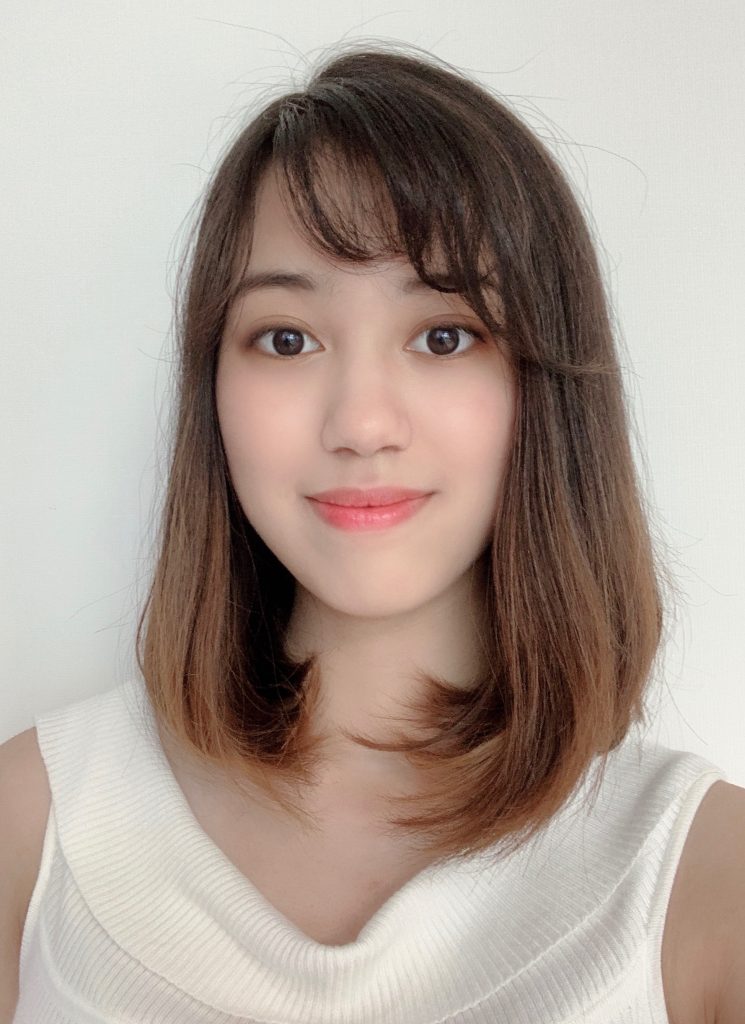
KTBYTE student Amanda Sherman is currently a sophomore at North Reading High School (NRHS). In the past, she has been both a lead TA and Dev TA. This year, she will be taking USACO Bronze and is one of the lead instructors who will be teaching App Design Club. Below are her responses to the following questions:
Which classes have you taken at KTBYTE, and which are your favorite?
I have taken CS00a, CS00b, CS01a, CS01b, and CS90 so far, but my all-time favorite is CS90 because it has encouraged me to think through problems in an outside-of-the-box way. I like to compare this to building a skyscraper. First, you have to understand what you’re going to build. Reading over the problems multiple times to grasp the full concept will most likely be necessary.
CS90 has taught me that it’s worth it to take your time as long as you understand how you get to the solution – this will ensure that you build a strong structure of knowledge with which to solve more difficult problems later on.
How has your TA experience been?
Very stimulating. Sometimes, kids are going to know exactly what they need to get from Point A to Point B in their head, but they’re not able to voice their thoughts clearly in that moment. Even when my students were working on their projects independently, I was constantly looking out for any errors that popped up on their screens. You need to be able to identify and fix problems as fast as possible, because if you wait, then they’ll get bigger and impact more areas of your code.
Overall, I’d say communication was the strongest skill I learned. When guiding someone else to the right pathway, you need to have a good grasp of the pathway itself. Using precise language when I provided feedback allowed my students to discover the solution within a matter of seconds. Occasionally, I stumbled upon topics which I had not touched upon as much in the classes that I took here at KTBYTE, but they were a blessing because they allowed me to adapt to the problem itself and be able to grasp code after skimming over it for just three seconds.
From Day 1 to Day 18, I watched my students blossom from frail seeds into maverick individuals who would not let a single error hold them back from their dreams. My hidden confidence emerged as I found the voice that I needed to lead my class to victory.
What do you love about being a TA?
My students’ grit in the face of problems. From Amazon Echo to meme compilations, they brought up a lot of current technology that they were infatuated with. Programming is amazing because it allows you to build anything you want, but the discussions that I had with the kids struck a chord of hope in me for our future.
Their passion for coding and their determined drive to impact the world in their own unique way reminds me that no matter how big of a challenge I’m facing, there will always be a way to find the solution. Whether it’s a minor syntax error in a ping-pong program or conceptual confusion in a USACO problem, their simple but direct way of shooting straight for the solution is a refreshing way of thinking in a multifaceted world.
Have skills learned from kTBYTE classes transferred into your work as a DevTA?
Definitely. DevTA-ing requires a lot of creativity. You have to be able to look at a problem objectively and identify factors which will influence the solution, all skills that I practiced on Bronze problem sets in my CS90 class. Then, you have to combine your knowledge of all of those factors and develop an idea to solve the problem. Whether you’re working with a USACO problem set or trying to build an equation to figure out the radius of a black hole, you have to be able to think outside of the box.
This summer, we were collaborating on a points-based system for the KTBYTE website that would keep students motivated to learn by rewarding them every time they accomplished something noteworthy, such as giving a correct solution to an in-class problem. In return, students would be able to upgrade the icon on their profile and earn badges. While our team was working on a problem, we had to factor in all of the ‘special cases’ which might derail our overall vision. We had to consider such things as how online classes differ from in-person classes and implement a system that works for both. Our head intern, Jackson, was constantly encouraging us to think of new solutions; then, we had to vet them for practicality.
For example, I came up with an idea to level up a student’s profile picture based on the number of points that they earned, but it would be more complicated to implement than in theory. We decided to randomize the color of each user’s profile picture for the time being to get all of the theoretical planning down first; then decide whether or not we would implement the idea a week later. The answer to a problem is rarely straightforward, but the bumps in the road will take you much farther than traveling on smooth pavement.
What are your plans for the App Design Club in the fall?
App Design Club is a new club taking place at KTBYTE starting this September for students ages 11-14. I’m teaching it with Jonathan Lei, a fellow KTBYTE student. The class is geared towards teaching kids the process of designing and developing their own apps. Initially, we’ll start with discussing a few popular apps with our students, such as Crossy Road and Angry Birds; then, we’ll move onto talking about which features make the app easy and efficient to use (e.x. large text, having a simple objective, easy navigation, etc…).
Towards the final sessions, we’ll guide them towards finishing up the programming and organize a presentation where they describe what their app is about. The excitement brought by students when they have a new idea is always contagious – it’s even inspired some ideas for projects I’ve created in the past, such as a fireworks display that pops up when you click on the screen.
What was something special you discovered during your experiences at KTBYTE?
Reaching out to others when you have questions is what KTBYTE encourages the most. There have been tons and tons of times when I got stuck on a concept and scratched my head, trying to bridge it all together, but there comes a point when I know that it’s necessary to get other people’s input.
Whether it’s guiding a younger student to the correct pathway of reaching a solution or discussing with other Dev TA’s what the most efficient layout for the class page is, collaboration with people who are immersed in the same field you are in will teach you to stay open-minded to others’ ideas. Everyone’s input is important because even if they do not have the answer that you are looking for, they will often answer questions which you didn’t even realize that you had.
What are your plans for the future?
I plan to study Computer Science in college for now, but I am very open-minded as to what I’ll do in the future. Chances are, I might switch majors in college and find an area of study that I enjoy more, or I might focus on a subset of STEM such as Artificial Intelligence & Machine Learning. Either way, I’ll definitely be in an area that thrives on new ideas and sells them to people. Combining business and technology while collaborating with a wide range of people excites me on a whole ‘nother level.
How has KTBYTE impacted you?
Coming out of 8th grade, I often felt confused about where I was going in my life. The middle school that I went to was small and didn’t have many opportunities that immersed students in STEM, which was what I was exposed to during every single day of my life. Seeing all of these amazing startups on T.V., such as Apple and SpaceX, inspired me to teach myself basic Java and Python starting from the previous fall as a pathway to achieve my dream of designing a product that would revolutionize the world.
However, as many YouTube videos that I could get my hands on that offered free programming tutorials, I longed for a community with like-minded people, where I would feel free to immerse myself in my passion and be motivated by peers. When I happened to stumble upon KTBYTE at a STEM fair during the spring of 8th grade, it intrigued me how they were offering so many opportunities to students, such as machine learning courses and national programming competitions, when previously, I hadn’t even known of their existence.
KTBYTE served as the nexus that inspired me to take hold of the reins of my own future, to be bold in my endeavors, to pursue the solution to a problem even when I felt like it was as far away as Sagittarius A, the black hole that binds our galaxy together. I found the fulfillment that I genuinely desired in the teachers who never failed to answer my emails about a stubborn error that kept on persisting in my code, the fellow TA’s who I struck up lasting friendships with, the neat programming memes that I’ve discovered through my intern this summer.
They listened to my ideas with bona fide interest and encouraged me to live my life to the fullest. I’ve truly discovered my place at KTBYTE through taking classes and passing my knowledge onto the next generation that I TA for. Through this cycle of discovering and passing on knowledge, I have affirmed my identity in the confidence that I feel in never giving up on my pursuits.
